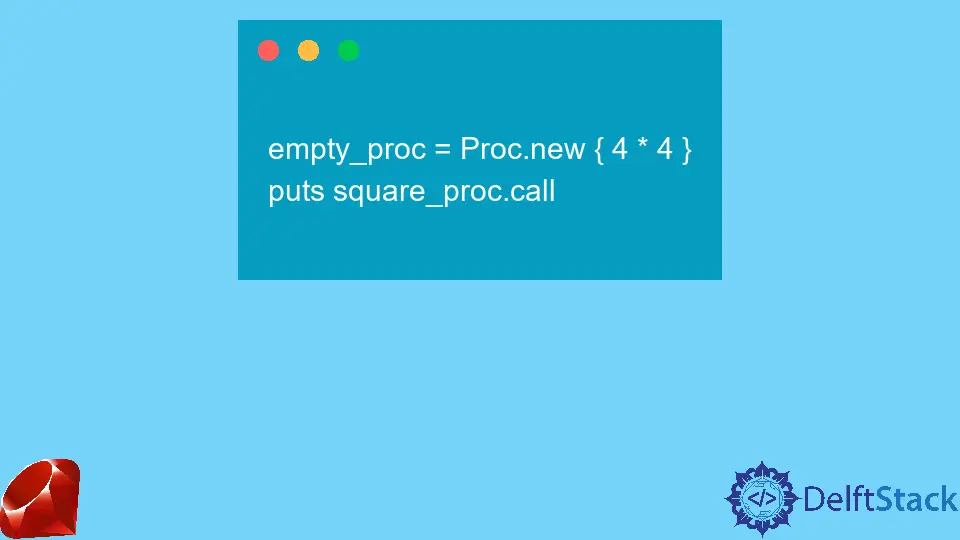How to Use the call() Method in Ruby
-
Creating a
ProcClass in Ruby -
Use the
procKeyword in Ruby -
Use the
lambdaKeyword in Ruby -
Use the
lambdaLiteral Syntax in Ruby

Ruby’s call method is used on Procs. To understand Proc, we need first to understand Block.
Ruby blocks are anonymous functions that are enclosed in a do-end statement or curly braces {}.
The Proc block can be stored in a variable, passed to a method or another Proc, and invoked independently using the call method.
Below are different ways of creating a Proc.
Creating a Proc Class in Ruby
square_proc = proc { |x| x**2 }
puts square_proc.call(4)
Output:
16
In the above example, we argued the call method because the square_proc defined a parameter x.
If we did not define any parameter in the Proc, we wouldn’t need to pass any argument to call at the point of invoking the proc.
This is not a very good case, though. Below is another example with no parameter defined.
empty_proc = proc { 4 * 4 }
puts square_proc.call
Output:
16
Use the proc Keyword in Ruby
multiplication_proc = proc { |x, y| x * y }
puts multiplication_proc.call(4, 5)
Output:
20
The above methods show how to create regular Procs. There’s another flavor of Proc called lambda.
Procs and Lambdas are usually used interchangeably, though with a few differences. The methods below show how to create this flavor of procs called lambda.
Use the lambda Keyword in Ruby
square_lambda = ->(x) { x**2 }
puts square_lambda.call(5)
Output:
35
Use the lambda Literal Syntax in Ruby
multiplication_lambda = ->(x, y) { x * y }
puts multiplication_lambda.call(5, 6)
Output:
30